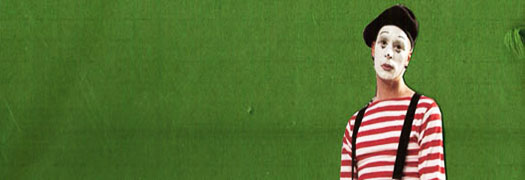
Features | Lists
By The Staff
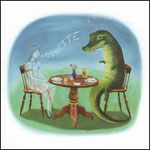
Castiotone for the Painfully Alone
Etiquette
(Tomlab)
Let’s start with the band name. Casiotone for the Painfully Alone is so fortuitously catchy as to be utilitarian: this particular nom de plum is a spot-on description of not only what the music sounds like, but the audience to whom it is addressed. This is a collection of missives to lonely people that seem to have been created with the aid of a $75 synthesizer. If more bands participated in this kind of full disclosure when selecting a name we critics would soon be out of a job. The White Stripes, say, might be called “Bitchin’ Riffs for the Righteously Nostalgic”; a band like I’m from Barcelona would be re-dubbed “Hysterical Nonsense for the Emotionally Vacant”; and CMG favorite Subtle would go by “Funk-Hop Freakouts for the People Who Really Wish Andre Benjamin’s Weirder Impulses Were Good and Not Just Weird.” The last one is a little laborious, but you get the point.
But despite the cost effective means of production and Owen Ashworth’s propensity for atonal vocal stylings, Etiquette is neither minimalist nor novelty. Detractors pointing to the droning lyrics, the dearth of conventional melody and the canned beats raise a valid point: this is not everyone’s cup of tea, but there is meaning in the monotone. Loneliness is a kissing cousin to run-of-the-mill boredom, and the binary effect of his voice coupled with the words he is speaking realizes both of these related but distinct components of Casiotone’s overall aesthetic. The effect is akin to the wilful monotony induced by interminable silences in a Beckett play. Beckett wanted to involve his audience by allowing them to experience the boredom and loneliness of his characters; Ashworth attempts similar inclusiveness by fashioning his music into a soundtrack to the narrative of his lyrics. The ability of this technique to translate between media is an understandable cause of scepticism, but Ashworth pulls it off with exacting aplomb.
His dedication to exploring the perimeters of this emptiness allows these songs to bear repeated listening. “New Years Kiss” is full of the longing disillusionment of the outsider; a fantasy lavish with detail, but ultimately peopled with phantoms. Conversely, album standout “Young Shields” revels in the insulation of solitude: “There’s a shield around us / It’s invisible and soundless” Loneliness is mercurial, it is unfixed, and the lonely hang on for dear life when it swings. The articulation of these subtleties is a heavy burden to lay at the feet of one guy with a thrift store keyboard, and the measure of success exhibited by Etiquette is an accomplishment that has gained my respect.
Eric Sams
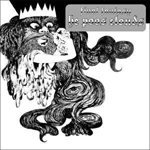
Final Fantasy
He Poos Clouds
(Tomlab)
I’ve heard bad things about this record, like “go mope elsewhere,” shit like that. And I guess He Poos Clouds may be easy to write off, because it’s called He Poos Clouds, and because it’s by a classically-trained violinist who doesn’t have the street cred to call himself “The hip-hop violinist” (yet), and because it was recognized for “General Excellence” by way of a national award (which is never, ever a reliable touchstone for Actual Excellence in Canada, pardon my general/actual cynicism but I’ve watched too many Junos specials to not be that guy). Also note that there’s a not-insignificant amount of shock-screaming on Poos and, you know, dude’s also queer, like that Xiu Xiu guy sometimes is, and therefore he’s definitely trying to prove something about art or perception or crawling skin or something like that and boy is that ever pretentious, with a violin of all things especially, too.
This isn’t a mope record. It’s actually a little reverse magic eightball of insight and wit, and the more it shakes you the more dark truths rise up out of its bowels (sorry): “I want to learn from my mistakes / before they scare me away from the drugs” or “picture a man / who misses his father / he never learned to cook for himself / and now he spends all his time / on his waistline” or “there are things I cannot do / I cannot turn a skinny little shit / into a winsome Brit / who spent his days in pursuit of honest pleasure” or “she drives a little white car to the seminar / on modern romance / possible ideas for a date include / a shooting range / and her chest is full of bursting with thoughts of an evening / nobody will never know her longing.” Is there a Polaris prize for most tactful use of a double-negative? All of this surrounded by a stripped-down alterna-score to Fantasia, as Pallett chops and whittles and reduces our nagging personality ticks to tinier, sharper splinters of our nagging personality ticks. What you’ll notice most is the ruthless juxtaposition of grace and predation. Pallett’s strings, keys, horns, accordion, and kettle drums alternately stomp and pirouette around his subjects’ jugulars before stripping them out and waving them proudly like it’s an Olympic floor routine. The borderline lounge-pop of “This Lamb Sells Condos” details what happens when the Richmond Street graduates sell their souls: “And then as an apprentice / He took a Drowish mistress / Who bestowed upon his youthfulness a sense of Champagne Chic / Oh seduction, his seduction to the world of construction / Now his mind will start to wander when he’s not at a computer / And his massive genitals will refuse to cooperate / No amount of therapy / Will ever save his marriage.” I dunno, man. Wolf Eyes? Everyone’s into ugly so long as it’s not about themselves.
Plus now he’s doing arrangements for the new Spoon record. Gotta hate that fucking OC band.
Aaron Newell
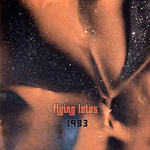
Flying Lotus
1983
(Plug Research)
Because instrumental hip hop isn’t a niche, it’s a genre, and for some of us a damn important one. 1983 is an album of bright percussive soundscapes, simple explorations of what tones can function as a bass drum, which rattle works best over which burble, but the clean efficacy and intelligence with which the sounds are layered makes this a surprisingly accessible experimental hip-hop record. It’s an album full of sounds, built around simple noises, resounding with warmth. Check the fazed pin-prick that plucks throughout “Bad Actors,” a sound around which the whole track pogos; dig as well the expressive bump-clap burble-hop of “Sao Paulo,” wherein the barely-there synths let the good-Madlib dusted drums ride, spare stunners they be. The Broadcast-via-Avalanches outro “Unexpected Delight,” a.k.a the track with vocals, is made so unexpectedly delightful not by the presence of vocals but by the way it applies the lessons learned from the preceding experimental tracks to a more conventional song structure. And this, if anything, is why it’s worth mentioning again that Donuts, excellent though it is, was not the only instrumental hip-hop record of aught-six. Donuts is endless mixtape booty, sure, but records like 1983 need to come out to prove where else hip-hop can go. Flying Lotus are scoping the borders, just dots on the horizon, but the missives these explorers send back make the frontier sound like home.
Clayton Purdom

Tim Hecker
Harmony in Ultraviolet
(Kranky)
Sound is cotton swabs; Hecker uses tweezers to pull long trains of fluff away from the core. This is an album of shifting moods and patterns; songs matter and don’t, or rather simply mark the ease of passage from one mood to the next. Hecker’s a strict technician, and his movements, static-laden and creatively stressed and staggered though they are, often operate on classical-like motion (a fact which, I suspect, I what prevented this album from reaching our main list where rock-orientated Lisbon succeeded). But what always strikes me about his music, and it’s amplified here, is just how confident his flow from one stanza to the next remains, even when he’s really allowing things to get odd and uncomfortable, and even when the pieces are so starkly opposed that the smooth transition doesn’t initially seem to make sense. He’s not a pied-piper necessarily, but he certainly knows how to lead you off the trodden path.
Mark Abraham
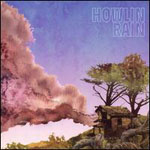
Howlin Rain
Howlin Rain
(Birdman)
Like Ryan Adams with more cred, Comets on Fire frontman Ethan Miller is infatuated with the task of reclaiming the 1970s for legions of indie kids; instilling them with the idea that there’s really no shame in garnering enjoyment from their parents’ Deep Purple and Blue Cheer records. But whereas his four albums with the Comets traffic in mind-blowing psychedelia, side project Howlin’ Rain purposely veers towards the calmer side of ’70s rock: country-tinged, radio friendly AOR; less Fillmore East, more “Sweet Home Alabama.”
But Miller’s loopier than Ronnie Van Zant, and there are just enough modern touches to these nine songs to differentiate them from the genuine radio article. John Fogerty would surely cover his ears in disgust at the ear shredding fuzzbox guitar that Miller utilizes during the bridge of “Calling Lightning With a Scythe.” But subtract that portion, and the rest of the banjo driven tune rides a swamp happy groove that’s classic CCR. Despite the comparatively mellow proceedings, Howlin’ Rain don’t skimp on the solos, and a lot of these songs could simply be classified as Comets on Fire with an acoustic guitarist and higher mixed vocals with more overt references to hard drugs. And if that’s not a recommendation of the highest caliber, then I don’t know what is.
David M. Goldstein
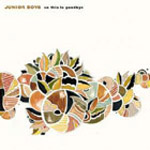
Junior Boys
So This is Goodbye
(Domino)
So, here we are at #34 on Cokemachineglow’s Top 50 Albums of 2006, and. huh? Wait, what? Honorable Mention? What the hell.
Anyone who’s paid attention to our Highest Combined Rating chart throughout the year probably could’ve sworn that Junior Boys would make our Top 50. The only explanation I can offer for all those broken oaths is that Connor Morris was this album’s biggest supporter on CMG, and Connor’s currently got non-Internet things tying up his free time. The remainder of us who liked this album liked it mildly, and I guess “mildly” ain’t enough to put one up on the Liars doing a Mt. Eerie record.
Sometimes I wonder if just liking an album isn’t appreciated enough these days. Must something be loved or hated for it to be worthy of note? I know plenty of people who hate So This Is Goodbye, and I know plenty of people who love it, but I think there’s just as many people who are like me, enjoying this album in a sedate, sleepy-eyed, 1/4-aroused kind of way. After Subtle’s left my brain bone-dry, after Califone’s swept a dust bowl up in my spirit to let a sprinkle of water clear it out, after Clipse have sent me diving out of windows, So This Is Goodbye is the perfect night-cap, its non-dance dance vibes parsing out its sex with some chill cubist angles, ice in some languorous scotch. Like loving a person, loving an album can be pretty taxing, and while I’m not arguing that the loving’s not worth it, it’s nice to have an album that I can digest with a thoughtless sort of comfort, a complacency that comes with sweat pants and a glass of cheap wine. Does Goodbye deserve better? It’s got keen production, loads of vibe, and maybe just the right amount of cheese in the lyrics and Greenspan’s cabaret gasps. Does it deserve worse for the same reasons? I don’t care. I’m happy enough to let the album just flow into me, as naturally as if it were pure chemical. This may not be love, but it’s still a feeling.
Chet Betz
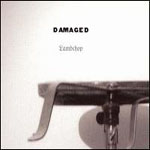
Lambchop
Damaged
(Merge)
Damaged should have little if any resonance for someone like me. I’m in my early 20s; Damaged is a meditation on aging, death, and failed relationships. I like punk rock and hip-hop; Damaged is ponderously slow country album that threatens to lull me to sleep. I like old-school Lambchop; Damaged has none of the clever detachment of How I Quit Smoking, the soulful weirdness of What Another Man Spills, or even the orchestral pep of Nixon. It is a dark, measured, and quiet album.
On the other hand, Kurt Wagner has never sounded so human, so honest, so completely discouraged and worn-down. So this isn’t just emo for the geriatric set, nor is it even really depressing; it’s gorgeous country music that defies target audiences or shared experiences. To document middle age, Wagner establishes a deep sense of melancholy through a study of the slow minutia of everyday life. Musically, this means that Wagner’s 15-man band and their soft-toed lockstep defines restraint, and that’s crucial; allowing these songs to blossom or steam would be antithetical to their purpose. Lyrically, this desolation is built into the fabric of the brilliant “Paperback Bible,” but it’s just as much a part of the dejected “Beers Before the Barbican,” the goofy “Crackers,” and the stunning, poignant “Prepared [2].” And, of course, watching him rage against it all with “The Decline of Country and Western Civilization” is the most unsettling (and impressive) moment of the album. Suddenly he is exuberant and angry, grasping for something more. So even if I have trouble explaining why Damaged is in my top ten because of all the reasons it shouldn’t appeal to me, it’s easy to see why reason has nothing to do with why I love this record: I just settle in and hear how it captures the quiet beauty of life with a subtle charm to which none of Wagner’s peers come even close.
Peter Hepburn
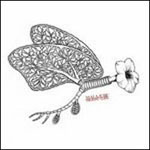
Malajube
Trompe L'Oeil
(Dare to Care)
It appears Trompe L’Oeil’s big coming-up party was being short listed for this year’s Polaris Music Prize, no small feat when you consider they were up against indie favorites and mainstream juggernauts alike, such as Broken Social Scene, Sarah Harmer, The New Pornographers, Metric, Final Fantasy and last year’s CMG Album of the Year winners, Wolf Parade. A few of us may have been guilty upon reading said list of nominees of singling out Malajube and mouthing “who?” to ourselves, but a few listens is all it took for us skeptics to find ourselves endeared to this Quebec band’s debut and for the last piece of that Polaris puzzle to tumble into place. Trompe L’Oeil is simply a pop-rock record, and it’s unpretentious and tremendously likable in that simplicity.
“Pâte Filo,” “Montréal -40°C” and “La Monogamie” were, as their titles may imply, created with a steady diet of rock n’ roll staples in mind: big, slick guitars, bubblegum keyboard lines and a healthy peppering of “ba-ba”-ing. These are later fittingly offset by the towering riff of “Casse-Cou” and anthemic “Étienne D’août”. It’s all so infectiously and uncomplicatedly rocking that it may take a few listens before it’s really apparent that you’re not having any idea what they’re singing about. It doesn’t matter. Hell, “Le Crabe” is positively “Live and Let Die”; these songs are designed to be universal in their appeal.
Conrad Amenta
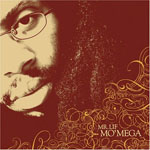
Mr. Lif
Mo' Mega
(Def Jux)
If you slept hard on this record, or forgot that it came out entirely, you’re not alone. Waiting four years to release a record will do that to a fan, which is a damned shame. Mr. Lif’s 2002 output may not have been the best of the Def Jux crop, but I would argue that, for all its hang-ups, I, Phantom is probably the most fun. Not that you’d know from the first half of Mo’ Mega. Supplanted by El-P’s clipped, bottom heavy beats, he begins the record contemplating suicide as a response to critics (“Listen to my wrists leak crimson / all over the floor from my wrists / there, now ya got Lif”) and goes on from there. Lif cleverly used his political awareness to muse on modern life’s alienation throughout Phantom, but here he’s straight out bugging. Lif hasn’t abandoned his themes altogether (the anti-commercialist “Ultra/mega” finds him listing off clothing styles as if they were sharks surrounding his raft), and in fact part of what makes it work is that he’s portraying an overwhelming society by being overwhelmed. Good thing, though, that there’s “Murs iz My Manager,” wherein Murs convinces him to sell out by, among other things, doing a verse with Al Gore and writing one for Ben Affleck. Mo’ Mega is on par with the Bostonian’s best work; now if only he would work more frequently.
Christopher Alexander
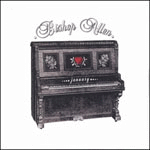
Bishop Allen
January / February / March / April / May / June/ July / August / September / October EP
(Self-released)
When we last left Bishop Allen it was June, I was living in New York, and they were cranking out EPs faster that I could write rent checks. There was a heat wave, and Boogz and I were writing each other love letters based on EPs so good that you simply had to tell a friend about ‘em. Since then, I’ve moved back to Iowa, the boys of Bishop Allen have kept their DIY 2006 project rolling, releasing 3 more EPs as well as a full-on 13 track live album that served as August’s release. Boogz and I don’t talk like we used to, but damn do we still love indie-pop.
Especially these EPs, which are concept pieces with a delightfully shallow concept: one EP a month for a whole year. While on the surface it would be fair to assume a certain amount of gimmickry here, the EPs are finely crafted, discrete works that have an identity within their broader context. In other words, this is not a collection of 50 songs arbitrarily stuck to each other and released in batches of four. The best of the set (my picks would be February, June and October) establish emotional and thematic relationships that unfold wickedly fast; these are 12 minute joyrides fueled on pop hooks and the insanity of daily life.
The loose structure of the concept allows them to draw their inspiration from literally anywhere: police stations, airplanes, rummage sales, Catholic schools, historical figures (“Abe Lincoln” is a quirky honky-tonk gem), insects, SUVs, and dirty sheets. While we knew from Charm School (2003) that these guys could make pop, the monthly EPs established them as astute observers of the minutia of daily life. Over the trajectory of the series you can see their confidence as songwriters grow, even as their music retains its quirky, amateurish charm. With their frozen attachment to time, these EPs often feel like musical snapshots; they have a visual and nostalgic quality that is reaffirmed by August’s EP being a live album — capturing music that would have otherwise disappeared. These are remembrances, and seeing the world through Bishop Allen’s backward glance is rarely a bad thing.
Of course, soundtracking the whole calendar might have been a bit much, even for the hardest-working band in indie-pop. As of this writing, November and December are nowhere to be found, leaving the project about 8 songs short of completion. But, really, who cares? Those are dark, cold months, anyway, and Bishop Allen clearly have their eyes pointed toward what must look like a very sunny 2007.





